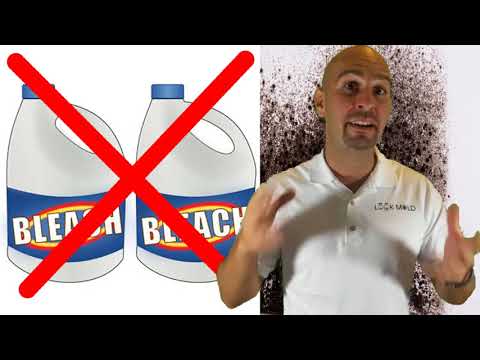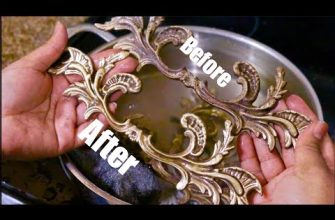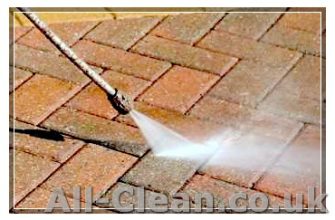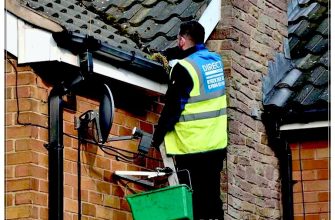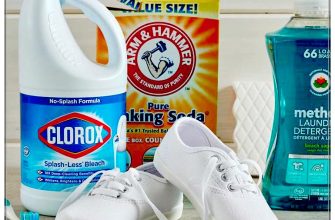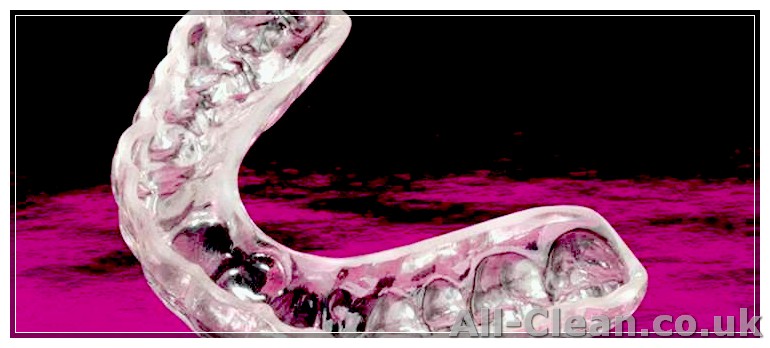
Night guards are devices that are often used to prevent teeth grinding or clenching, a condition known as bruxism. These mouthguards are typically worn during sleep and create a barrier between the upper and lower teeth to protect them from damage. However, if not properly cared for, night guards can become a breeding ground for bacteria and mold.
Black mold is particularly dangerous because it can release spores into the air that can be inhaled and cause respiratory issues. This is why it is essential to keep your night guard clean and free from mold. Fortunately, there are several ways to prevent and clean mold on your night guards.
One of the best prevention methods is to always clean your night guard immediately after use. Rinse it thoroughly with water and use a nonabrasive soap to gently brush away any debris. Additionally, it is important to let your night guard dry completely before storing it, as mold thrives in moist environments.
For weekly cleaning, you can soak your night guard in a solution of equal parts water and vinegar or hydrogen peroxide. Let it soak for about 20 minutes, then carefully brush away any remaining mold or bacteria. Another effective cleaning method is to combine baking soda and water to create a paste. Apply this paste to your night guard, let it sit for a few minutes, then rinse it off.
If you already have black mold on your night guard, it is crucial to take immediate action. Soak it in a mixture of warm water and vinegar or hydrogen peroxide for at least 30 minutes. Be sure to rinse it thoroughly and inspect the surface for any remaining mold. If necessary, repeat the soaking process until the mold is completely gone.
By adopting a regular cleaning habit and following these cleaning methods, you can effectively prevent and clean black mold on your night guards. Always remember to prioritize your oral health and keep your mouthguard clean to avoid potential health hazards.
- Prevention of Black Mold on Night Guards
- Clean your night guard carefully and immediately after each use
- Use hydrogen peroxide or baking soda to clean your night guard
- Clean your night guard weekly with mouthwash
- Store your night guard in a clean and dry place
- Replace your night guard regularly
- Clean Your Night Guard Regularly
- Avoid Moisture and Humidity
- Here are some tips to avoid moisture and humidity:
- Here’s how to clean your night guard to prevent mold:
- Store Your Night Guard Properly
- Cleaning Black Mold on Night Guards
- Prevention:
- Cleaning:
- Use Vinegar Solution
- Use Baking Soda Paste
Prevention of Black Mold on Night Guards
Black mold can be a common problem for those who wear night guards. However, there are several ways to prevent the growth of black mold on your night guard and keep it clean and safe for use.
Clean your night guard carefully and immediately after each use
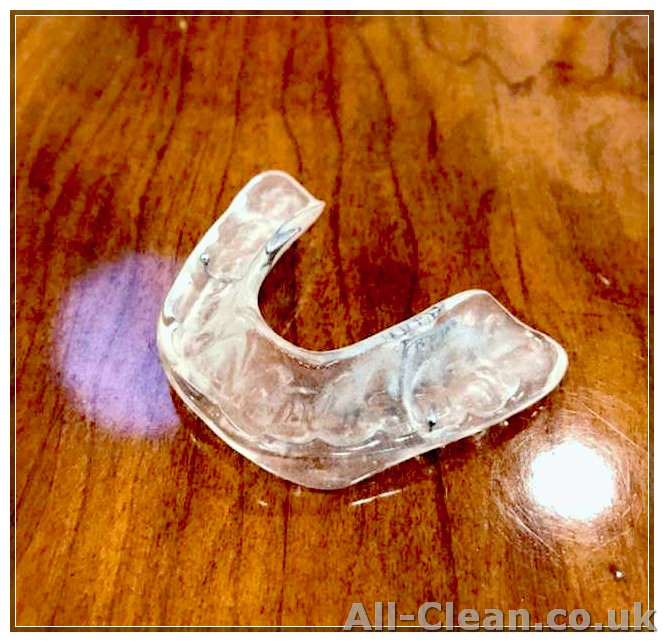
It is important to clean your night guard after each use to prevent the growth of mold. Rinse it with cool water to remove any saliva or debris, and then gently brush it with a soft toothbrush and non-abrasive toothpaste or denture cleaner.
Use hydrogen peroxide or baking soda to clean your night guard
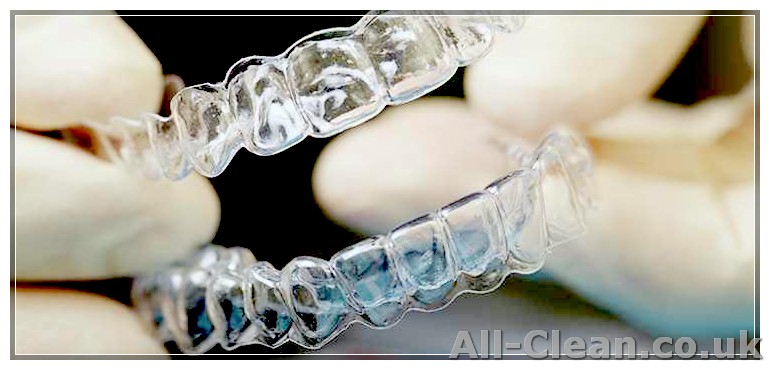
Hydrogen peroxide can be an effective cleaner for removing mold and bacteria. Soak your night guard in a solution of equal parts hydrogen peroxide and water for 30 minutes, then rinse it thoroughly. Alternatively, you can mix baking soda with water to create a paste and gently scrub your night guard with it. Rinse thoroughly afterwards.
Clean your night guard weekly with mouthwash
Using mouthwash can help kill bacteria and prevent mold growth on your night guard. After cleaning your night guard with water and toothpaste, soak it in a mouthwash solution for 30 minutes. Rinse it thoroughly with water before using again.
Store your night guard in a clean and dry place
After cleaning your night guard, make sure to store it in a clean and dry case to prevent the growth of mold. Avoid storing it in a damp or dark environment, as this can promote mold growth.
Replace your night guard regularly
Even with proper cleaning and maintenance, night guards can become worn out and less effective over time. It is recommended to replace your night guard every 6-12 months or as recommended by your dentist.
By following these preventive measures and properly cleaning your night guard, you can reduce the risk of black mold growth and maintain a clean and safe device for your oral health needs.
Clean Your Night Guard Regularly
Keeping your night guard clean is crucial not only for its longevity but also for your overall oral health. Regular cleaning helps prevent the growth of black mold and other harmful bacteria. Here are some tips to help you clean your night guard properly:
- Soak in hydrogen peroxide: Every few days or every two weeks, soak your night guard in a mixture of hydrogen peroxide and water. This will help eliminate any bacteria or mold that might be present. Make sure to rinse the night guard thoroughly after soaking.
- Use vinegar: Another effective cleaning solution is vinegar. You can soak your night guard in a mixture of equal parts vinegar and water for about 30 minutes. Then, rinse the night guard thoroughly to remove any vinegar residue.
- Use a soft, nonabrasive brush: When cleaning your night guard, use a soft toothbrush or a brush specifically designed for oral appliances. Avoid using abrasive cleaners or cleansers, as they can damage the night guard.
- Apply mouthwash: If you’re especially concerned about freshening up your night guard, you can apply some mouthwash to it. Make sure to choose an alcohol-free mouthwash to avoid drying out your mouth or damaging the night guard.
Note: When cleaning your night guard, always follow the manufacturer’s instructions. Some mouthguards may require different cleaning methods.
Regular cleaning is essential for the prevention of black mold and other harmful bacteria that can accumulate on your night guard. By following these cleaning tips, you can ensure that your night guard remains clean, fresh, and free from any health hazards.
Avoid Moisture and Humidity
Cleaning your night guard regularly is important to keep it free from black mold. One of the main reasons mold can occur on your night guard is because of moisture and humidity. When your night guard is not properly cleaned and stored, it can become a breeding ground for mold and bacteria.
Here are some tips to avoid moisture and humidity:
- Take it out after each use: After wearing your night guard, remove it from your mouth and clean it as soon as possible. This will help prevent moisture from building up on the surface of the night guard.
- Keep it dry: After cleaning your night guard, make sure to thoroughly dry it before storing it. Moisture can lead to mold growth, so it’s important to keep your night guard as dry as possible.
- Store it properly: Find a clean and dry place to store your night guard when you’re not using it. Avoid storing it in a bathroom where there is high humidity, as this can increase the chances of mold growth.
Here’s how to clean your night guard to prevent mold:
- Rinse with water: Using lukewarm water, rinse your night guard to remove any saliva or debris.
- Use a gentle soap or cleaning solution: Apply a small amount of mild soap or cleaning solution to a soft toothbrush or cloth. Gently scrub the night guard to remove any remaining bacteria or stains.
- Soak in hydrogen peroxide: For a deep clean, soak your night guard in a mixture of water and hydrogen peroxide. This can help remove any stubborn spots or mold.
- Thoroughly rinse: After soaking, rinse your night guard thoroughly with water to remove any leftover hydrogen peroxide or cleaning solution.
- Dry before storing: Make sure your night guard is completely dry before storing it in its case. Moisture can lead to mold growth, so it’s important to store a dry night guard to prevent any potential issues.
By following these cleaning tips and avoiding excess moisture and humidity, you can help prevent black mold from growing on your night guard. Keeping your night guard clean and dry is essential for maintaining good oral hygiene and preventing any health hazards associated with mold growth.
Store Your Night Guard Properly
Properly storing your night guard is essential in preventing black mold growth and maintaining its cleanliness. Here are some tips for storing your night guard:
- After each use, rinse your night guard with clean water. This helps remove any saliva, food particles, or bacteria that may be present on the surface.
- Dry your night guard thoroughly before storing it. Moisture can promote mold and bacterial growth, so make sure your night guard is completely dry before putting it away.
- Avoid storing your night guard in a damp or humid place. Moisture can accumulate and provide a suitable environment for mold to grow.
- Store your night guard in a clean case. Using a case specifically designed for night guards helps protect it from dust, dirt, and other contaminants.
- Do not store your night guard in direct sunlight. Sunlight can degrade the material and affect its effectiveness.
- Avoid storing your night guard near any chemicals or cleaning agents. Some chemicals can damage the night guard material, leading to less effective protection.
It is also important to clean your night guard regularly to prevent bacterial growth. Here are some cleaning methods you can use:
- Brush your night guard thoroughly with a non-abrasive toothbrush and toothpaste. This helps remove any debris or plaque buildup on the surface.
- Soak your night guard in a mixture of water and baking soda. Baking soda has natural cleaning properties and can help eliminate any odor or stains on the night guard.
- Use hydrogen peroxide or vinegar to soak your night guard. These solutions can help disinfect the night guard and kill any bacteria or mold that may be present.
- Consider using denture cleaners to clean your night guard. Denture cleaners are designed to remove stains and kill bacteria, making them a suitable option for cleaning mouthguards.
- Always follow the manufacturer’s instructions when cleaning your night guard. Some night guards may require specific cleaning methods or solutions.
By properly storing and regularly cleaning your night guard, you can prevent black mold growth and maintain your oral health. Remember to consult your dentist for specific instructions on caring for your night guard, as different mouthguards may have different cleaning requirements.
Source:
Healthline: “How to Prevent and Clean Black Mold on Night Guards”
Cleaning Black Mold on Night Guards
Black mold on night guards can be a health hazard and should always be addressed immediately. Night guards are dental devices designed to protect your teeth while you sleep. However, if not properly cleaned, they can become a breeding ground for mold and other harmful bacteria. Here are some ways to prevent and clean black mold on night guards:
Prevention:
- Always store your night guard in a dry and clean place.
- After wearing the night guard, rinse it with water and brush it lightly with a toothbrush to remove any debris.
- Deep clean your night guard at least once a week to prevent mold growth. You can do this by soaking it in a solution of hydrogen peroxide or denture cleanser, or mouthwash.
- Avoid using abrasive cleaners or vinegar, as they can damage the night guard.
Cleaning:
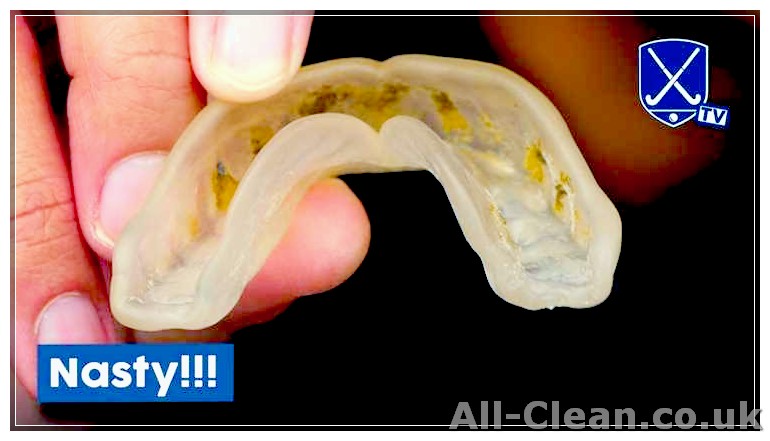
- Identifying black mold on your night guard is important. In case you see any signs of mold growth, follow these steps to clean it properly:
- Fill a glass with equal parts of hydrogen peroxide and water, or use denture cleanser or mouthwash.
- Soak your night guard in the solution for at least 15 minutes.
- After soaking, brush the night guard again with a toothbrush and toothpaste to remove any remaining mold or stains.
- Rinse the night guard thoroughly with water to remove any traces of the cleaning solution.
- Allow the night guard to dry completely before storing it.
By following these cleaning and prevention measures, you can effectively remove and prevent black mold on your night guard. Regular cleaning and maintenance are essential for keeping your night guard safe to use and protecting your oral health.
Use Vinegar Solution
If you want a natural and effective solution for preventing and cleaning black mold on night guards, you can try using a vinegar solution. Vinegar is a powerful cleaning agent and has antifungal properties that can help kill black mold and prevent its growth.
Here’s how you can use vinegar solution for your night guard:
- Mix equal parts of white vinegar and warm water in a bowl or container.
- Submerge your night guard in the vinegar solution, making sure it is fully covered.
- Let the night guard soak in the solution for about 30 minutes to an hour. This will help kill any mold or bacteria present on the surface of the night guard.
- After soaking, remove the night guard and rinse it thoroughly with clean water.
- Use a gentle cleanser or toothpaste to brush the night guard carefully, paying attention to any spots or areas where mold may have been present.
- Rinse the night guard again to remove any remaining cleaning solution or residue.
- Finally, let the night guard air dry completely before putting it back in its case or wearing it.
Some additional tips and precautions include:
- Always combine vinegar with baking soda to create an even more effective cleaning solution.
- For a deeper clean, you can use hydrogen peroxide instead of water in the vinegar solution.
- Make sure to dry the night guard thoroughly to prevent moisture buildup, which can encourage mold growth.
- If you notice any signs of mold or black spots on your night guard again, repeat the cleaning process and consider replacing the guard if necessary.
- Regularly inspect your night guard for any signs of mold growth or wear and replace it if needed.
- Consider using an organic mouthwash or a mouth rinse specifically designed for night guards to help prevent mold and bacteria growth.
Using a vinegar solution can help keep your night guard clean and free from black mold, reducing the risk of any health hazard associated with wearing infected night guards. Always prioritize the cleanliness and health of your mouth during bruxism prevention.
Use Baking Soda Paste
One effective method for preventing and cleaning black mold on night guards is to use a baking soda paste. Baking soda is a natural and gentle cleanser that can effectively remove mold and mildew without damaging the night guard’s surface.
To make a baking soda paste, simply mix baking soda with a small amount of water to create a thick consistency. The paste should be easy to spread but not too runny. Apply the paste to the night guard, making sure to cover all areas where mold may be present.
After applying the baking soda paste, let it sit on the night guard for about 10-15 minutes. This allows the baking soda to penetrate the mold and break it down. Then, using a soft-bristled toothbrush or a clean cloth, scrub the night guard thoroughly to remove the mold. Be sure to brush gently to avoid scratching the night guard’s surface.
Once the mold has been removed, rinse the night guard with water to wash away any remaining baking soda paste. You can also soak the night guard in a mixture of water and hydrogen peroxide for added cleaning power. Hydrogen peroxide is a natural disinfectant that can kill mold spores and prevent further growth.
After cleaning your night guard, it’s important to dry it completely before storing it. Moisture can promote mold growth, so make sure to let the night guard air dry in a clean and well-ventilated area. Avoid putting it back in its case or wearing it while it’s still damp.
It’s also worth noting that using baking soda paste is a safe and non-toxic method for cleaning your night guard. This is especially important if you have children who may come into contact with the night guard. Using abrasive cleaners or harsh chemicals can be dangerous if ingested or if they come into contact with the mouth, so it’s best to stick to natural and gentle cleansers like baking soda.
In summary, using a baking soda paste is a simple yet effective way to prevent and clean black mold on night guards. By regularly caring for your night guard and following proper cleaning techniques, you can ensure that it remains mold-free and safe for use.
